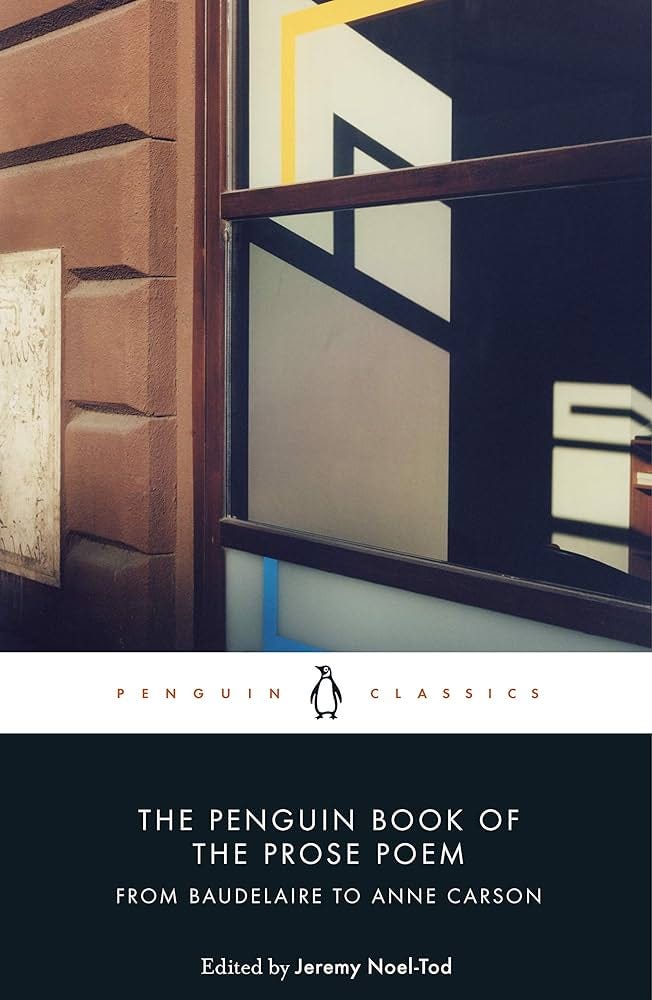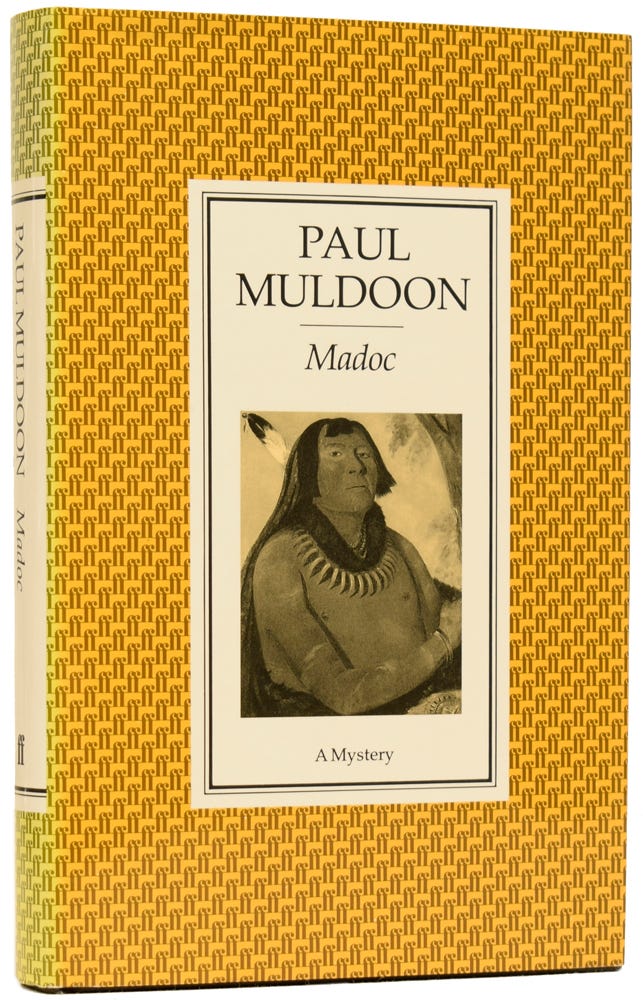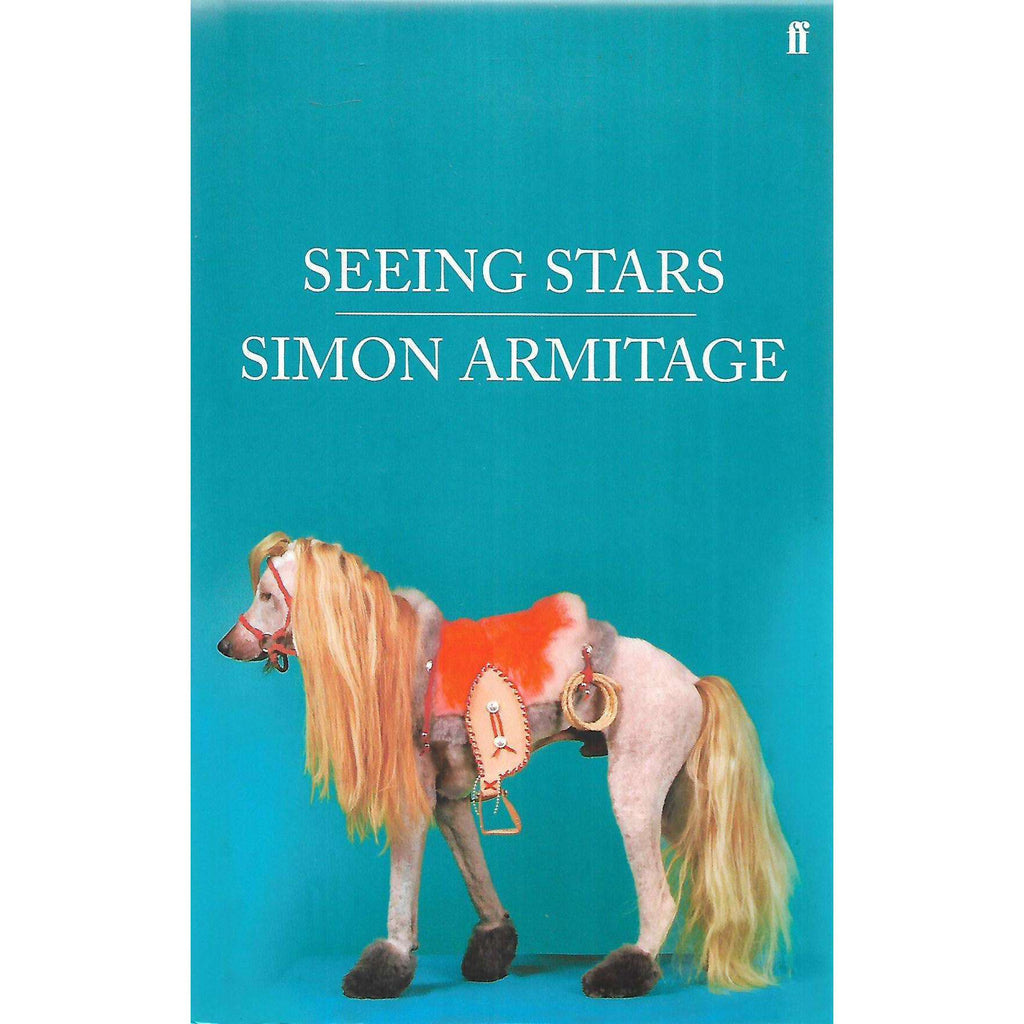In 2018 I edited The Penguin Book of the Prose Poem, an anthology that attempted to trace, over two centuries, an international history of poems without line breaks. Several American anthologies of the prose poem already existed, and one aim of my book was to address the neglect in these surveys of poets from Britain and Ireland.
I’m now working on something like a companion volume: a critical history of prose poetry in Britain and Ireland over the last hundred years. As I try to join the dots between the poems I want to write about, I’m finding it’s becoming a cultural history — the story, that is, of the editors, critics, magazines and anthologies that shaped the narrow canon of Anglophone prose poetry in the twentieth century.
So this week I thought I would share some work-in-progress from a chapter about the prose poem in the 1990s. The main poem discussed is Paul Muldoon’s “The Key”, which you can read on Google Books here.
It’s not a poem in my anthology, because I didn’t feel — and still don’t — that prose poetry is Muldoon’s forte; give me his lyric verse or large-scale works of rhyme, such as The Annals of Chile (1994), any day. But he has included it (presumably as a favourite) in two Selected Poems, and it became clear from my research that his prominent use of the form was almost certainly influential on other Nineties prose poems that I want to write about. So I sat down with it, and saw some things I hadn’t seen before. What follows is fresh off the Word doc, so all comments are very welcome.
From the late 1920s, T.S. Eliot oversaw the establishment and development at Faber and Faber of the most prestigious poetry list in Britain. In the Thirties in particular he also encouraged ambitious poetic experiment with prose, such as W.H. Auden’s The Orators (1932), David Jones’ In Parenthesis (1937) and his own translation of St John Perse’s Anabasis (1930). But after Eliot’s death in 1965, an increasingly conservative attitude towards formal experiment prevailed among those responsible for maintaining the Faber list as an arbiter of literary taste in Britain and Ireland. In the notes to his edition of Ted Hughes’ Collected Poems in 2003, for example, Faber poetry editor Paul Keegan explained that he had omitted the bulk of Gaudete (1975) — a long poem which moves between prose and free verse, and was originally published by Faber — on the grounds that it was a “sui generis narrative”. Keegan did then later publish Simon Armitage’s Seeing Stars (2010), the first-ever Faber collection entirely populated by prose poems. Yet the lengths to which the jacket copy goes to avoid calling them this is remarkable (even as its photo of a dog dressed as a horse perhaps gives a visual clue):
Simon Armitage’s new collection is […] a hyper-vivid array of dramatic monologues, allegories, parables and tall tales […] The storyteller who steps in and out of this human tapestry changes, trickster-style […] Language is on the loose in these poems, which cut and run across the parterre of poetic decorum with their cartoon-strip energies and air of misrule.
The reviewers were thrown, too, by Armitage’s decision to print the poems with a ragged right margin. Stuart Kelly, in the Scotsman, saw “by English standards, extremely long lines, usually over 12 syllables”. Kate Kellaway at the Observer wisely kicked the question into the long grass (“To say these poems resist classification is an understatement”). Sarah Crown, writing for the Guardian, suggested they were “formally very loose, gently line-ended but without anything much in the way of rhyme, metre or the other prosodic tools poets often bring to bear on their poems”. In the Times, Alan Franks similarly observed that “iambic pentameter would be an alien in this wordscape”. And although Paul Batchelor in the Guardian managed at least to speculate on the name of the beast (“Are they poems, or prose poems, or flash fiction?”) — and compared the collection to Gaudete — like the other reviewers, his quotations used a verse-like forward slash every time the right margin was reached.
Keep reading with a 7-day free trial
Subscribe to Some Flowers Soon to keep reading this post and get 7 days of free access to the full post archives.






